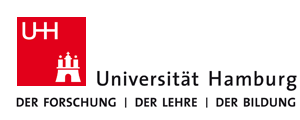UHH>Informatik>NatS>ACCSDS Web>Programme>Blue2 (17 Oct 2012, UnknownUser) Print version
Session "Linguistic Subsystems"
The purpose of linguistics in dialogue systems was discussed, mostly concerning interpretation of an utterance. Once everything is said and done (morphology, syntactic parsing, semantic parsing, etc.), the purpose of linguistics is to represent the "meaning" of an utterance. This is usually done by some meaning representation that relates the words in the sentence to each other, and possibly to other modalities. The question was asked: once we have a meaning representation, now what? In order for the dialogue system to act, it needs to interpret the meaning, something useful to the dialogue manager to make a decision. It was argued that logical forms are useful as a meaning representation, particulalry if entailment is desired throughout the dialogue, but logical forms are difficult for the dialogue manager to use directly. Frames offer a bridge between the utterance and a more readable interpretation, but frames don't show how the words of the utterance related to each other (even if the frames are made using concept tags). It was suggested that the linguistic structure could be treated as a latent variable that the dialogue manager takes care of and learns automatically. Should the linguistics be completely modularized, pipelined, or should there be one overarching understanding component that does everything? It was suggested that better coupling to the various linguistic components would better be served by doing the linguistic processing jointly. In other words, modularization is fine, but merge modules when possible. Edit this page-- TimoBaumann -- 06 Oct 2012  Copyright © by the contributing authors. All material on this collaboration platform is the property of the contributing authors.
Copyright © by the contributing authors. All material on this collaboration platform is the property of the contributing authors. Ideas, requests, problems regarding Foswiki? Send feedback
